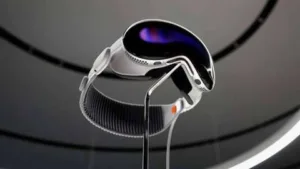What’s Next for Home Automation – The Future is Here
Certainly! Here’s the revised text:
Home automation has evolved significantly from basic remote-controlled lights and smart thermostats. Nowadays, the incorporation of artificial intelligence (AI), machine learning, and advanced sensor technology is revolutionizing our living spaces into highly intelligent, responsive environments. Looking ahead, several emerging trends and innovations are poised to redefine the concept of home automation. Here’s a preview of the future of home automation.
AI-Powered Home Assistants
Contextual Awareness
In the future, home assistants will be able to do more than just follow voice commands. They will have the ability to understand the context and intent behind user requests by using advanced natural language processing and machine learning algorithms. This will allow them to anticipate needs and provide personalized responses. For example, they could not only schedule appointments but also suggest optimal times based on the user’s daily habits and upcoming weather conditions.
Seamless Integration
AI-powered home assistants are expected to become central hubs, seamlessly integrating various smart devices and systems. This means that your lights, security cameras, appliances, and entertainment systems will all work together harmoniously. For example, when you say “I’m leaving,” your assistant will lock the doors, turn off the lights, adjust the thermostat, and arm the security system—all with one command.
Advanced Security Systems
Biometric Authentication
In the future, home security systems will include biometric authentication methods like facial recognition, fingerprint scanning, and voice recognition. These technologies will offer increased security by allowing only authorized individuals to access your home. Additionally, biometric systems can be combined with smart locks and surveillance cameras to improve overall security.
Proactive Threat Detection
The next-generation security systems will utilize AI and machine learning to proactively detect and respond to threats. These systems will analyze patterns and behaviors to identify unusual activities, sending alerts to homeowners and authorities in real time. For instance, if the system detects an unfamiliar face at your front door repeatedly, it can alert you and provide a live video feed for verification.
Energy Management and Sustainability
Smart Grids and Energy Storage
Home automation will play a crucial role in energy management. Smart grids and advanced energy storage solutions will become more prevalent. Homes will be equipped with intelligent systems that optimize energy usage by storing excess energy produced by solar panels and using it during peak hours. This will reduce dependency on the grid and lower energy costs.
Eco-Friendly Automation
Future home automation systems will prioritize sustainability by incorporating eco-friendly features. Smart thermostats, lighting systems, and appliances will be developed to minimize energy consumption. For example, automated window shades can adjust based on the time of day and weather conditions to maintain optimal indoor temperatures, thereby reducing the need for heating and cooling.
Health and Wellness Integration
Health Monitoring
The future of home automation will include advanced health monitoring systems that track vital signs and provide real-time health insights. For example, smart mirrors can analyze your skin for early signs of health issues, while smart beds can monitor your sleep patterns and provide recommendations for better rest. These systems can also alert you to potential health problems and suggest preventive measures.
Wellness-Focused Environments
Home automation can create environments that promote wellness and relaxation. Smart lighting systems can adjust color temperatures to improve mood and productivity, while air quality sensors can detect and eliminate pollutants. Additionally, automated aromatherapy diffusers and sound systems can create a calming atmosphere, enhancing mental well-being.
Entertainment and Connectivity
Immersive Entertainment Systems
In the future, home entertainment systems will provide fully immersive experiences by integrating virtual reality (VR) and augmented reality (AR) technologies. These advanced systems will enable users to enjoy movies, games, and other media more interactively and engagingly. Picture yourself watching a movie where scenes unfold around you in a 360-degree view or playing a game that transforms your living room into a virtual battlefield.
Hyper-Connectivity
In the near future, home automation will be characterized by hyper-connectivity. This means that all devices and systems in your home will be interconnected, enabling seamless communication and coordination. For example, your smart fridge can communicate with your grocery app to automatically order items when they are running low. Similarly, your washing machine can notify you when your laundry is finished. This interconnected setup will enhance convenience and efficiency in your daily life.
Is the Future Bright Enough?
The future of home automation is very promising, with advancements in AI, security, energy management, health integration, and entertainment leading the way. As these technologies continue to evolve, our homes will become more intelligent, efficient, and responsive to our needs. Embracing these innovations will not only enhance our quality of life, but also pave the way for more sustainable and secure living environments. The future is here, and it’s exciting to see what home automation will bring next.
Do you have a news tip or wish to contact us directly? You may reach us at hello@robotsoverdinosaurs.net.







